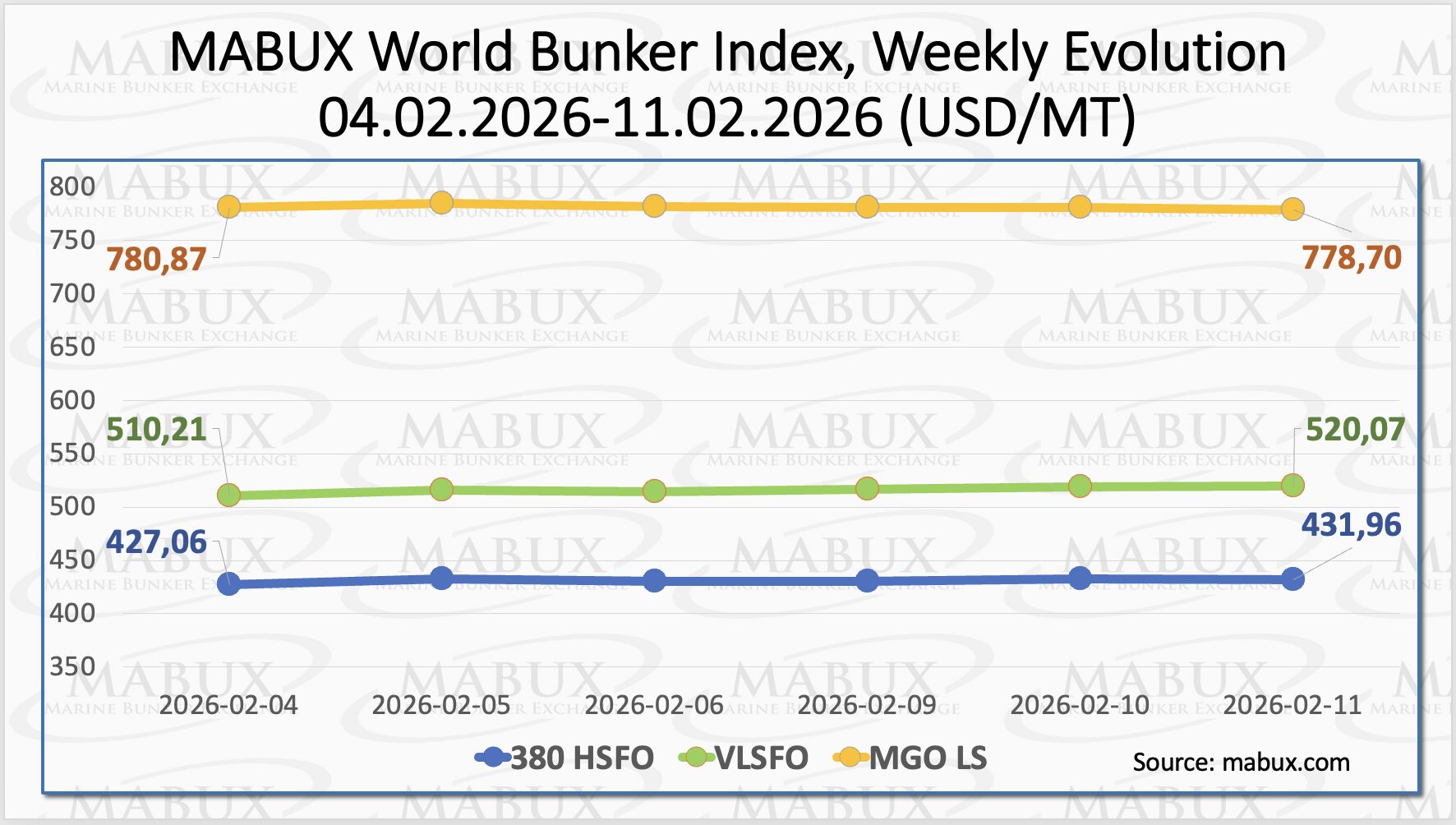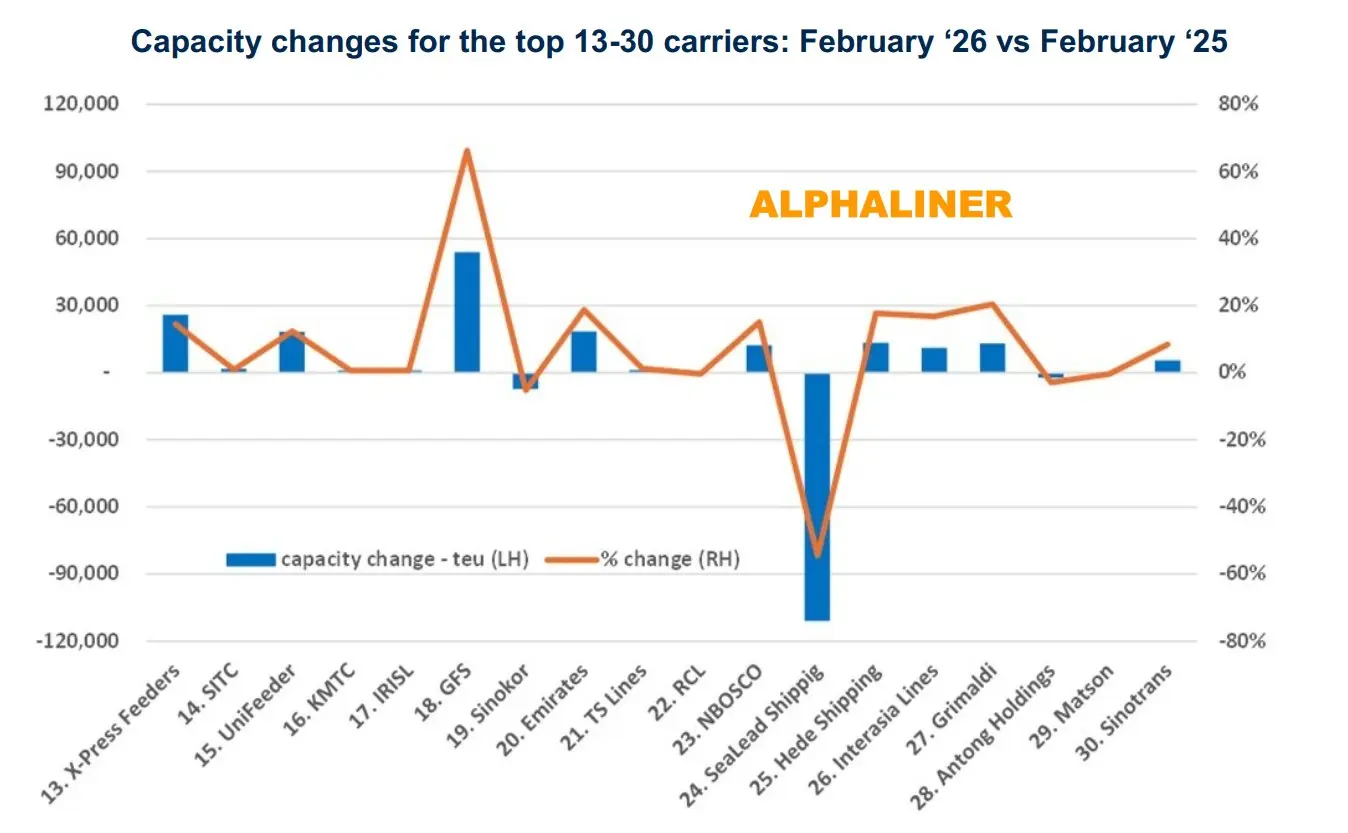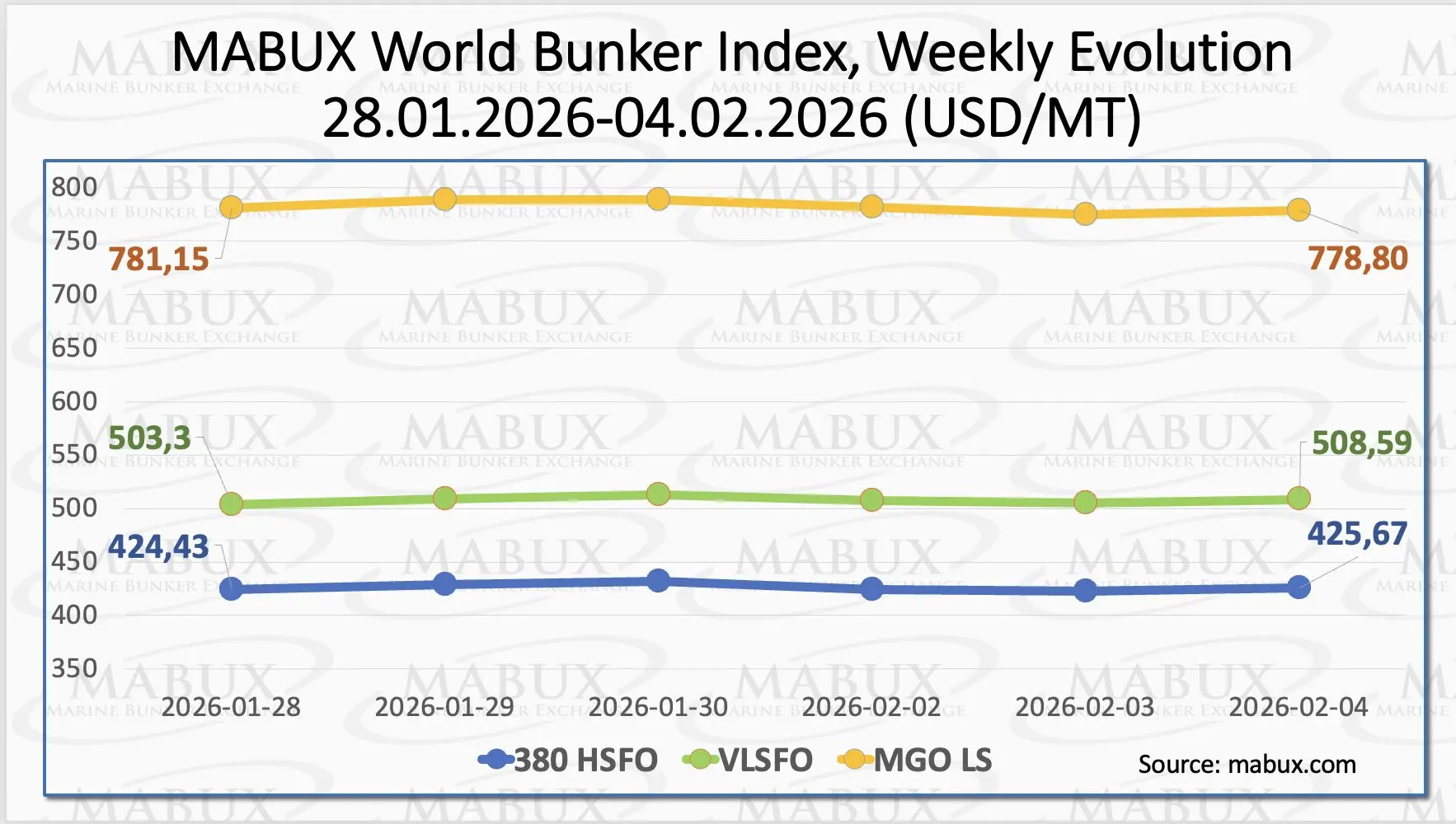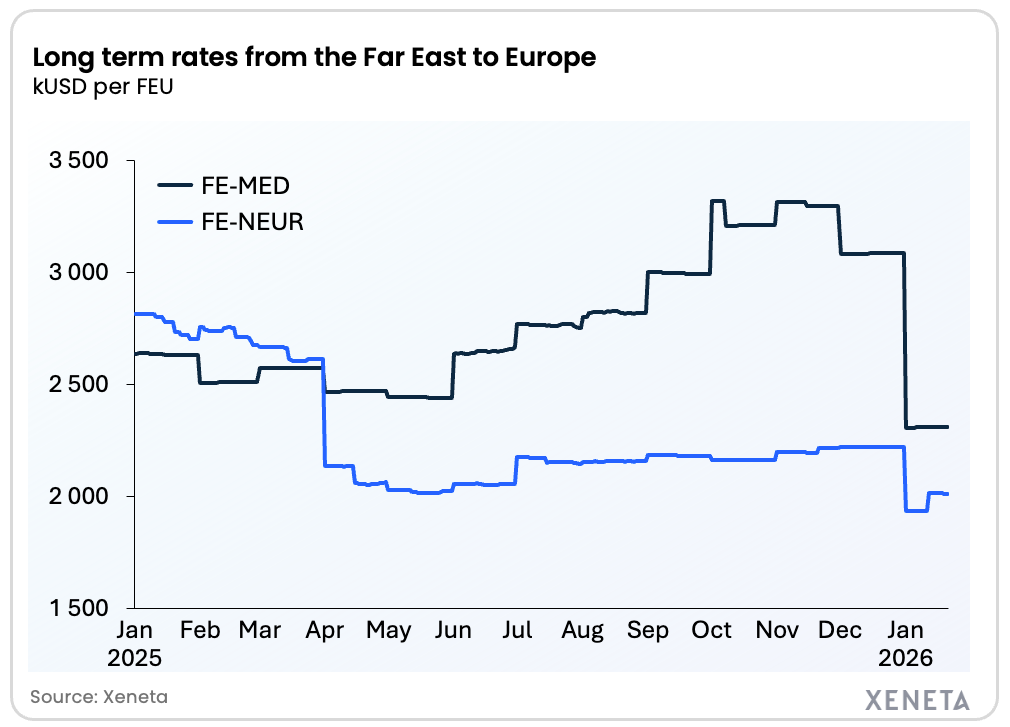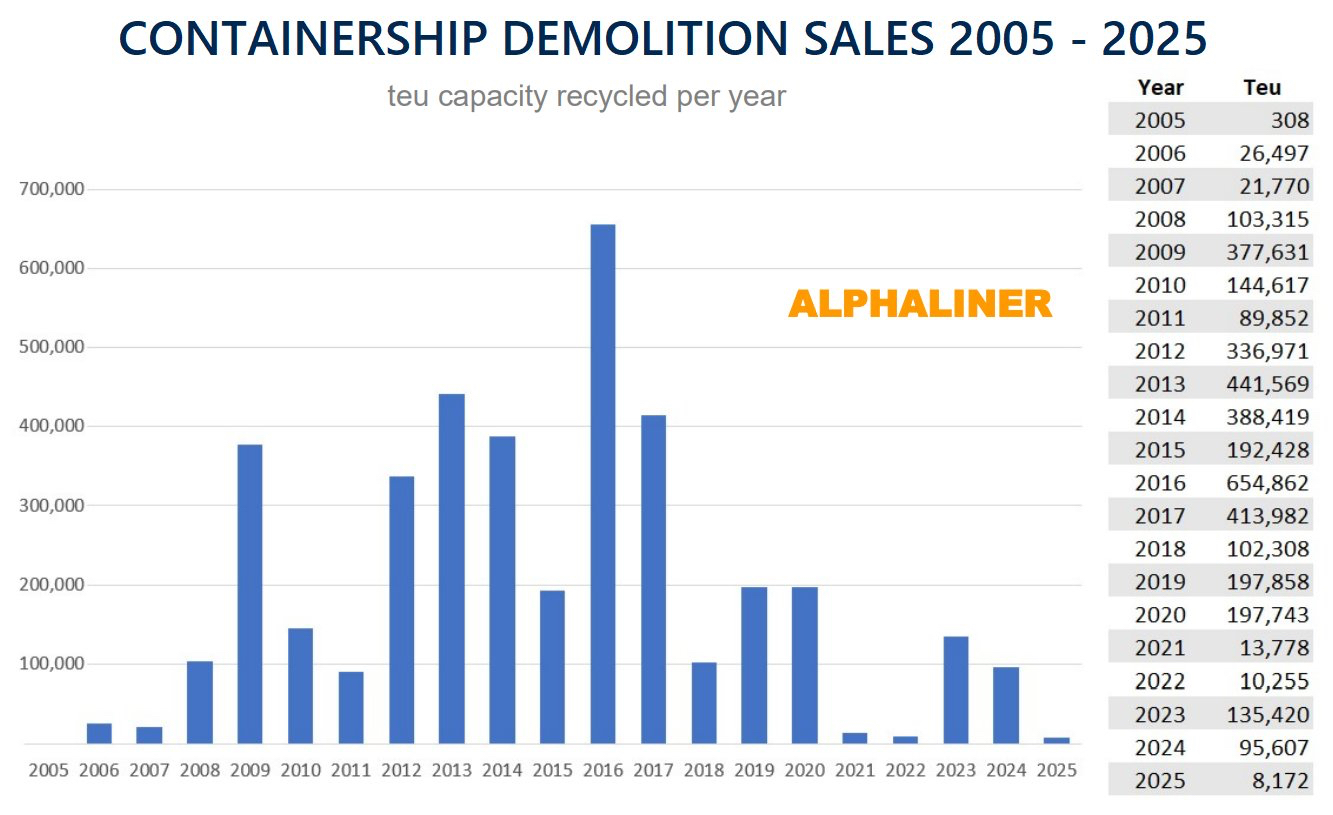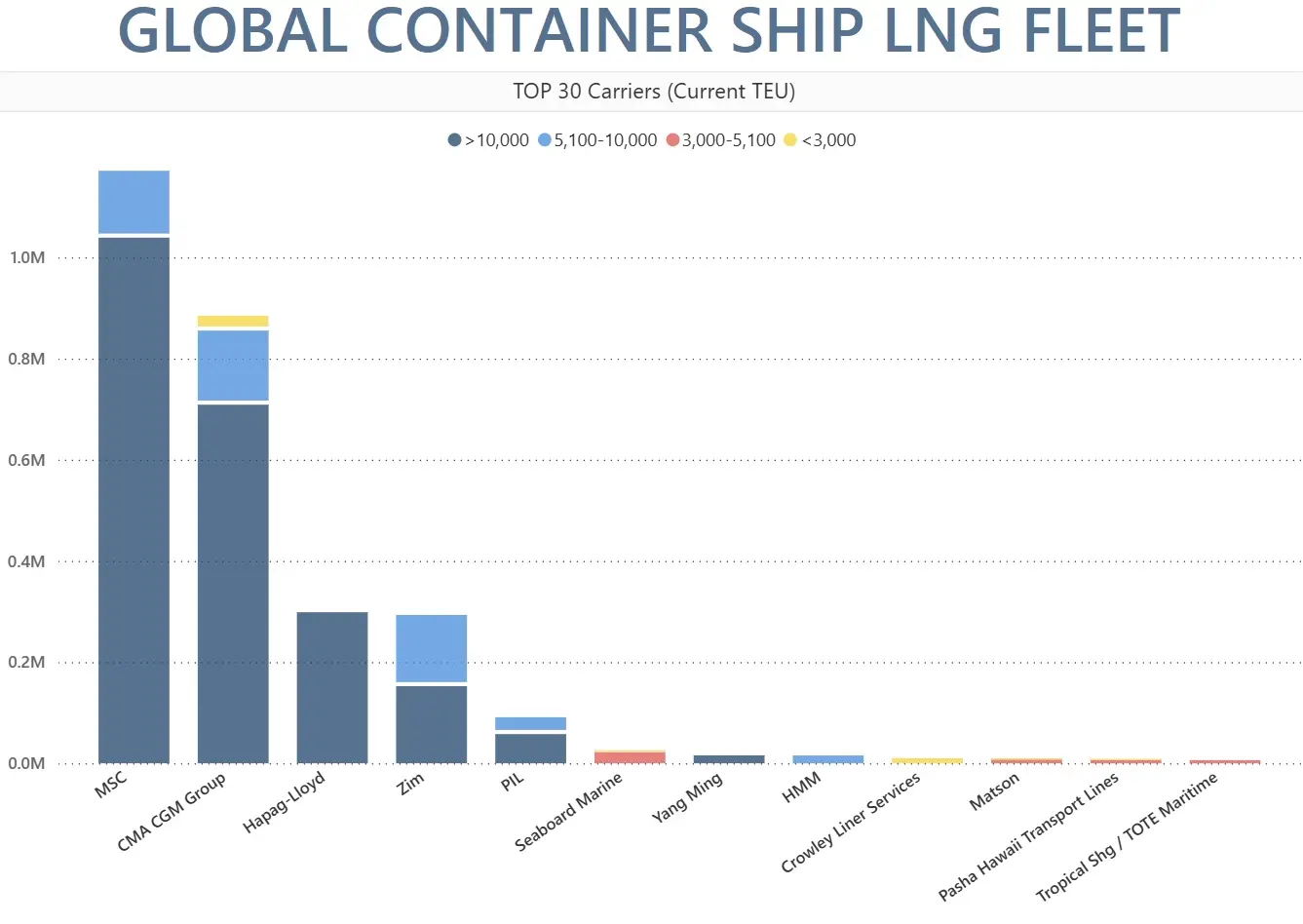
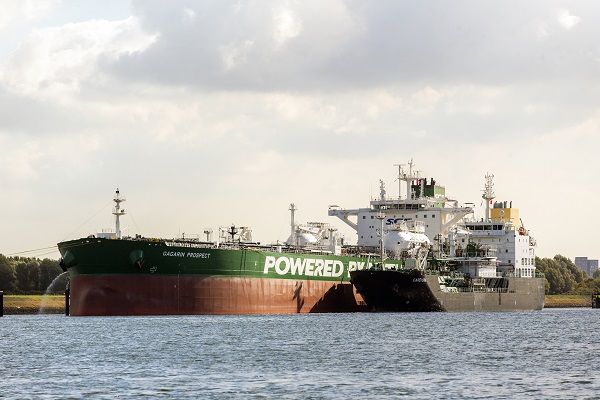
The firm upward trend on global bunker market continues. As a result, MABUX World Bunker Index has been rising during the week. The 380 HSFO index has risen from 376.32 USD/MT to 387.67 USD/ MT (+11.35 USD), VLSFO has added 22.10 USD: from 476.90 USD/MT to 499.00 USD/MT while MGO has gained 19.86 USD and has risen from 529.39 USD/MT up to 549.25 USD/MT.
Upward trend for Global Scrubber Spread (SS) (price difference between 380 HSFOs and VLSFOs) also continued: it widened by 7.96 USD and averaged 105.80 USD (97.84 USD a week ago), exceeding the 100 USD mark for the first time since March 2020.
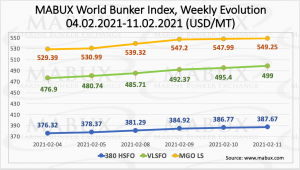
SS Spread in Rotterdam has widened over the past week from 92.00 USD up to 108 USD on Feb.14. Average value of SS spread for the week has risen by 9.17 USD from 89.50 USD last week to 98.67 USD. In Singapore SS Spread is well above 100 USD at the moment and has risen during the week by 11.00 USD: from 113 USD to 124 USD. Average weekly SS Spread in Singapore has gained 7.83 USD: from 112.50 USD last week up to 120.33 USD. The widening trend in SS Spread continues.
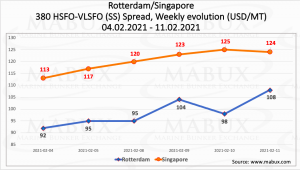
Correlation between MBP (Market Bunker Prices) and DBP (MABUX Digital Benchmark) in four global largest hubs during the past week showed that the market is still in a situation where 380 HSFO and MGO LS grades remain undervalued in all selected ports.
According to DBP Index, the 380 HSFO was underestimated in a range from minus $ 8 (Rotterdam and Fujairah) to minus $ 10 (Singapore and Houston), MGO LS was also undercharged from minus $ 3 (Houston) to minus 30 (Singapore).
DBP Index also registered VLSFO as the only fuel which remains overvalued in all selected ports: an overcharging ranged from plus $ 7 (Houston) to plus $ 16 (Singapore). In general, MBP and DBP indices have recently significantly narrowed, which indicates that the global bunker market is in a fairly balanced mode currently and follows quite accurately the moves of oil futures.

The Sustainable Shipping Initiative (SSI) sets out 13 sustainability issues and principles surrounding low and zero carbon marine fuels which are under consideration as part of shipping’s energy transition.
The report, “Defining sustainability criteria for zero and low carbon marine fuels”, says attention must be paid to the lifecycle sustainability of bunker fuels, and its principles are intended to feed into the development of industry standards and third-party certification schemes ‘to assure and facilitate the selection of – and demand for –sustainable marine fuels’.
Source: MABUX
Follow on Twitter:
[tfws username=”MabuxAB” height=”700″ width=”350″ theme=”light” color=”#FAB81E” tweets=”2″ header=”yes” footer=”yes” borders=”yes” scrollbar=”yes” background=”yes”]

